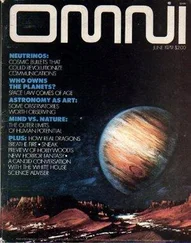That this was NASA, and he was screwed. The base was still full of evidence. Full of it, and no way to hide it.
And that they were coming in hot. Hard and fast and they were going to hit the base.
He was paralyzed with indecision. Had he left it too late to get to the buggy and drive off, to save himself for however long his air would last? Or was it simply better to let the fireball take him when the ship hit the Heights?
Come on, Frank. Think, goddammit. Think.
It couldn’t be NASA. If it was, they’d be early, and they couldn’t be early, because that wasn’t how space flight worked. Except he didn’t know enough about that to be certain. But this sure as hell looked like a descent ship, and it was growing visibly larger by the second.
Moment by moment, it swelled. It was coming down so very fast. And so very close.
Was it going to crash? It wasn’t like that hadn’t happened before. Cargo plowing into the Martian surface. Leaving a crater. Was the speed of this normal? Had he come in like this?
By now, the parachutes were huge, blotting out the sky, and it was still hurtling downwards. Dangling from the shrouds was a ship. Big enough to be a crew-rated ship. The air trembled. Dust was rising up all around him as if gravity had gone into reverse. If they were here, it was over. Goddammit, he should have got some warning. What was he supposed to do?
He leaned all the way back. The object had sprouted legs, tiny legs that didn’t look strong enough to support the body’s weight. It was going to be close, so very close.
Then, from his perspective, the oncoming vessel finally started to slide sideways in the sky. From being dead overhead to a few degrees off, then a few more, then clearly it was coming down to the north. It would just miss the base, and his own descent ship, and it wasn’t going to crush him.
The parachutes floated free, turning from taut dishes to sky-jellyfish in seconds. Smoke plumed from the base of the falling craft, and bright spears of translucent blue flame stabbed down. The ground shook as the new ship went from freefall to full stop on the Martian surface in bare seconds.
The rockets cut off, and a wave of dust and exhaust roiled across the Heights. With nothing to stop it, the front blew across the base. The brown fog that had formed during the ship’s descent was cleared away.
Two miles distant on the Heights, towards the steep drop-off to the crater floor, was a shiny white blunt-headed cone of a structure. He wasn’t ready. He wasn’t ready at all. There was still blood all over the floors and unburied bodies, and—
Breathe. Hold. Breathe.
If he was Brack, he would know exactly what this was and when to expect it. XO had told him explicitly that NASA were still three months away. They weren’t going to shit the bed. Look. Look carefully. His own descent ship was still here, and it was supposed to leave before the astronauts arrived.
OK. OK. It wasn’t the astronauts. What the hell was it? What, in the documentation, had he missed? He was determined that there wouldn’t be any panicked messages back to Earth, nothing that would show he was incompetent.
He forced himself to walk over to the fully charged-up buggy, and climb up. He didn’t want to go and look. He was scared of what he was going to find. But on the other hand, he knew he had to see what it was. He’d felt like this before, but not for a long time. His own father’s funeral. Dread. Sick to his stomach. And yet, it was something he had to do, a door he had to pass through.
He drove off across the Heights, heading in the unfamiliar northerly direction, skirting the big, thousand-yard crater that sat slap in the middle of the shelf. As he got closer, the ship slowly resolved in more detail. The legs—sturdy enough for the job, in a third of Earth gravity—just looked spindly, arranged around the circumference of the fatter cone, which sat so low that its base almost touched the ground.
Frank slowed and stopped, looking up at the structure from a respectful distance away. He could see the NASA logo on the side. There was other writing too, too small to make out from where he was. Sooty streaks ran from dark to light from base to tip, partially obscuring some of the letters. He abruptly realized that he was thinking of it as his Mars, and this new ship was trespassing. That was crazy. Mars was plenty big enough.
He climbed down from the buggy and approached. His heart was still yammering in his chest, and he was sticky with sweat. The ship was perfectly still, perfectly silent. For now.
“Hold it together, Frank.”
“Marcy?”
The last time he’d seen her, she’d filled up her helmet with vomit. So that’s how it was now. She spoke around the splashes on her faceplate.
“Take your time, Frank. Do it better.”
“Right. Better. Got it.” He nodded, and that seemed to satisfy her, because she wasn’t there when he next looked.
He turned his attention to the drop-off: the ground the ship sat on seemed stable enough. The rocket motors had blasted the dust away, leaving the rocks sitting on a bare, craze-cracked pavement. Mud cracks. They looked like mud cracks.
He was close enough to make out the smaller words. “Dogwood”. “MAV”.
MAV. The letters rang a very distant bell.
He circumnavigated the ship on foot, leaning back to gaze up at its blank, sloping sides. No windows, no external features at all to speak of. There was, however, a covered box fixed to one of the legs. Frank undid the catch, and found three buttons: two green, with arrows pointing up and down, and one central red one. He glanced around. No one was going to stop him from pressing the buttons, because he was the only one there. He thumbed the down arrow and stepped back.
A hole opened in the side of the ship and a telescopic ladder lowered itself to the ground. At the top of the ladder was a larger door-shaped outline, and a smaller rectangular outline that was probably the door mechanism. He climbed up, hand over hand, and pushed at the spring-loaded cover until it popped open.
Another two green buttons and one red; this time the arrows were pointing into, and out of, boxes. He tapped the in button, and the door pushed out, almost into his face, before sliding aside. Inside was an airlock.
He had another brief moment when he wondered if he should be doing this, and whether or not he ought to be phoning home to find out what the hell this was all about. Then he climbed up and in, and found the controls to close the airlock door behind him.
The main cabin—there was just the one compartment—was mostly empty. Three poles that went from floor to ceiling were the only furniture. There were mostly inert controls and panels around the walls—a few lights were awake, but none of the screens—and that was it. There was no one inside, and remarkably little room, given the size of the ship. His own descent ship was of comparable volume, and it went over three decks. He glanced down at his suit controls, and registered what his body had already told him: the ship was in vacuum.
He climbed out, and down the ladder, and closed everything up behind him. He walked around it again, and had stopped to look out across the drop-off to see where the parachutes had ended up, when something, some slight vibration, made him turn round. Louvered vents had opened up all around the ship’s middle, and two sets of solar panels had unfolded like fans from recesses on opposite sides. The panel arrays glittered blackly, before tilting towards the sunlight. Clearly something was happening, but Frank had no idea what.
But there were no astronauts. He was still on his own, for a couple more months. And that, suddenly, was OK, because he wasn’t ready. He needed to prepare the base, get everything sorted and squared away, to get used to the idea that he was going to be Lance Brack.
Читать дальше












